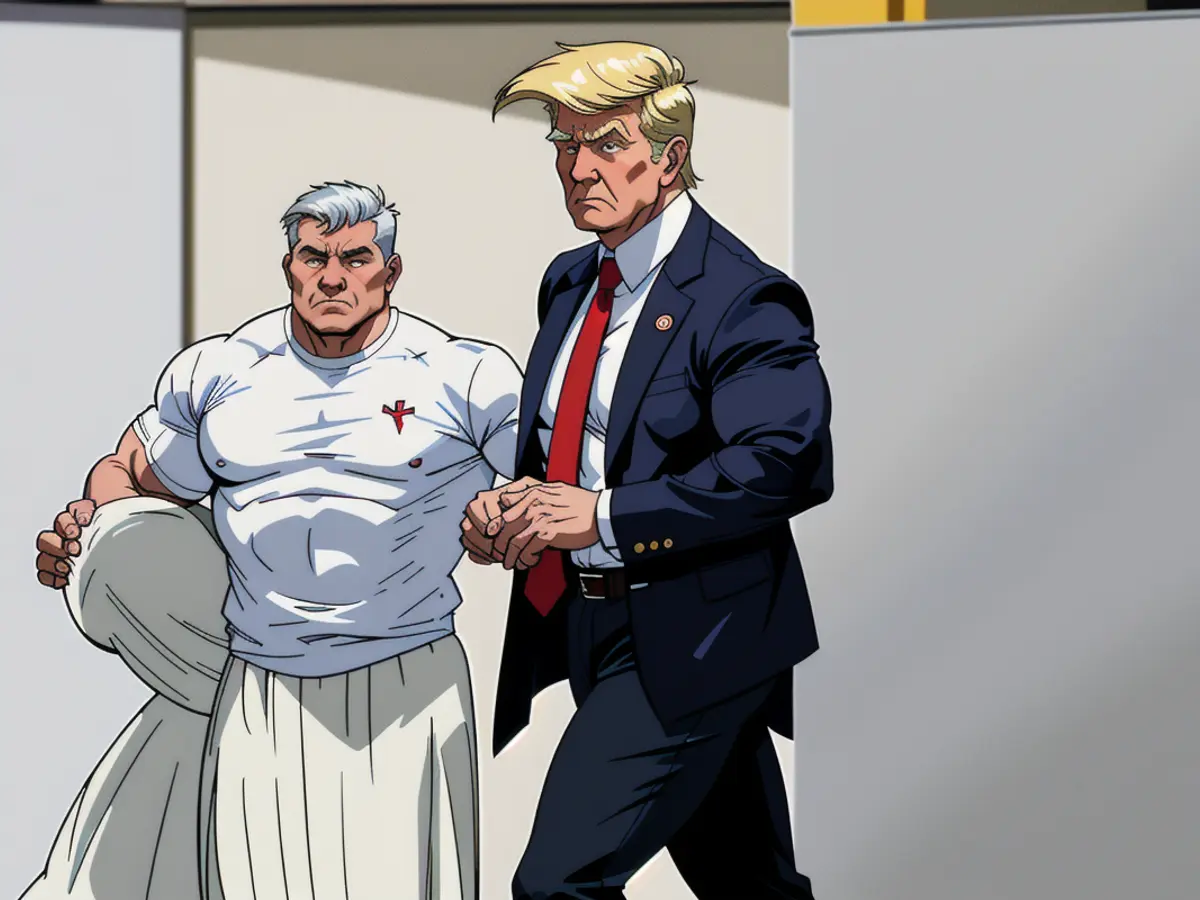Market turmoil intensifies due to tariff strife, as Trump declares readiness for discussions
In the midst of another tumultuous week for global markets, the burning question is just how far President Donald Trump is willing to push his trade wars and the potential damage they could cause.
After a weekend spent golfing at his Florida estates, Trump maintained an optimistic stance, claiming to have spoken with multiple countries and asserting that global leaders are "being very nice." Yet, the stock markets showed little grace as they dipped on Monday, with the Tokyo opening and US futures signaling potentially heavy losses on Wall Street.
Trump set vague hopes for the future, stating, "I can't tell you what's going to happen with the market, but I can tell you, our country has gotten a lot stronger... eventually it'll be a country like no other."
However, with markets closed for the weekend following a week of relentless losses, the White House administration had an opportunity to re-evaluate its strategy. But clarity remains elusive, with top officials sending mixed signals about Trump's desire to leverage his economic warfare for near-term dealmaking or to drastically remake the world economy for years to come.
Amidst this uncertainty, thousands of protestors took to the streets across the country, advocating against Trump's policies and expressing concern over the potential for a recession. Unfazed by the mounting dissent, the president seemed oblivious to the anxiety, sharing videos of his golf outings and announcing his victory in a club championship match.
Trump's policies aim to slap tariffs on 185 nations and territories, claiming that the rest of the world has profited at America's expense for decades. However, the United States stands as the world's richest and most powerful nation and has greatly benefited from free trade. The imposing tariffs risk causing chaos and disrupting the economy, potentially plunging the US and the world into a recession. Such fears contributed to last week's market meltdown and are now looming as a dark cloud over the global economy.
The Uncertain Endgame of Trump's Tariff Warfare
In an attempt to unravel the methods behind Trump's tariff warfare, officials took to television to address the media. Agriculture Secretary Brooke Rollins acknowledged that, at its core, Trump's tariffs represent an attempt to reshore jobs and create the manufacturing strength of the industrial era.
However, her statements were met with contradictions, as she later suggested that the tariffs were mere bargaining chips. This confirmation of Trump's desire for a fundamental reordering of the global economy was only further muddled when Rollins claimed that 50 countries were "burning the phone lines into the White House."
Trump's subsequent remarks on Air Force One hinted at a willingness to negotiate with China and the European Union, albeit with the intention of reducing trade deficits. These statements might prove an effort to alleviate some of the expected market damage, but the administration's approach remains complex, with the potential for stalemate or catastrophe looming large.
The remaining question lies in the kind of "deals" the administration wishes to pursue. Trump's top trade adviser, Peter Navarro, has made it clear that these deals would necessitate total capitulation from other nations, involving demands on issues beyond tariffs, such as non-tariff barriers and currencies.
While Trump's concern for the American workers left behind by the 21st century economy is commendable, his fixation on trade deficits and the trade in goods showcases an archaic worldview. This outdated perspective overlooks the modern economy's transition into a tech and services-driven powerhouse and the impossibility of producing basic goods like clothes at competitive prices in the United States. Producing such goods in the U.S. would lead to a rise in the cost of living, harming the prosperity of many Americans.
The administration's confident demeanor contrasts starkly with the growing unease among Americans, especially those whose retirement savings and purchasing power are being directly affected by the tariffs. Treasury Secretary Scott Bessent attempted to reassure the public, dismissing the impact of stock market losses as mere "choppiness" in an "adjustment process."
However, such confidence is not universal within the administration, as Commerce Secretary Howard Lutnick doubled down on the tariffs, stating unequivocally that they will remain in place for days and weeks. Lutnick appears willing to bet on the strength of the U.S. economy to force weaker nations to capitulate.
The impact of Trump's tariffs goes beyond the U.S., with China bearing the brunt of the U.S.'s trade retaliation. Cumulative tariffs on China's imports stand at 54%, severely restricting the buying power of American shoppers and jeopardizing retailers and consumer confidence. Such economic instability serves as a precursor to a potential recession.
In addition, China has retaliated with a 34% tariff on U.S. imports, exacerbating the challenges faced by American companies trying to enter the Chinese market. The administration rarely discusses the potential for multifront tariff retaliation, focusing instead on the U.S.'s power to triumph in one-on-one showdowns with other nations. However, this approach ignores the potential for a coordinated response that could further destabilize the global economy.
- Conceivably, due to the ongoing tariff warfare initiated by President Donald Trump, politicians around the world have been warned about the potential fluctuations in their economies that could arise from these trade disputes, with Saturday being just another day where nations may reassess their agreements and strategies in light of the uncertainty.
- As concerns regarding stock market instability continue to escalate due to President Trump's tariffs, officials have hinted at a possibility of negotiations with China and the European Union, which, while potentially alleviating some market damage, may also conceivably perpetuate the complex game of tariffs, with the risk of stalemate or even catastrophe still looming large.
- In the midst of the Us-China trade war and the threat of damaging tariffs, Americans have taken to the streets to protest, warning the administration about the potential consequences of such economic actions, including the conceivable risk of a recession, a loss of purchasing power, and a disruptive impact on the retail sector.









